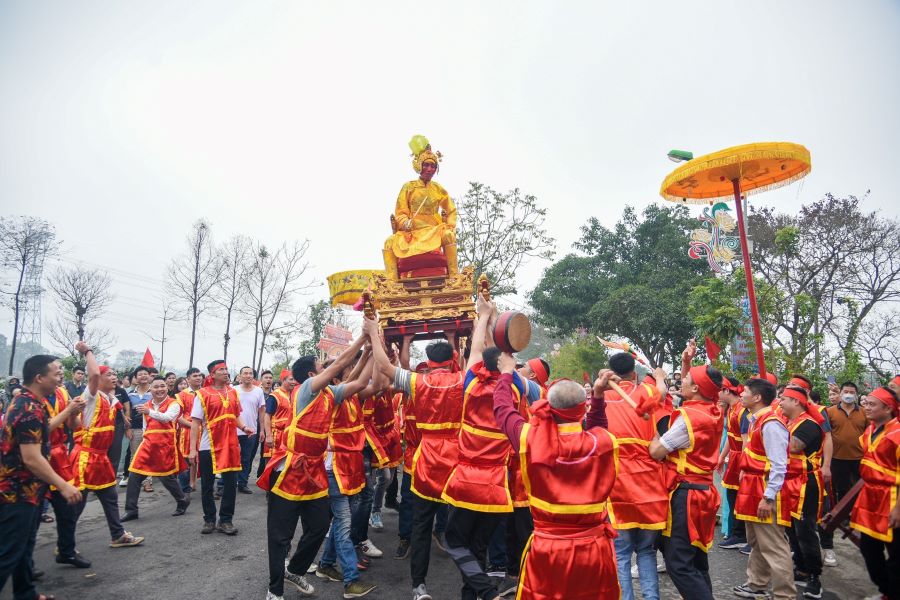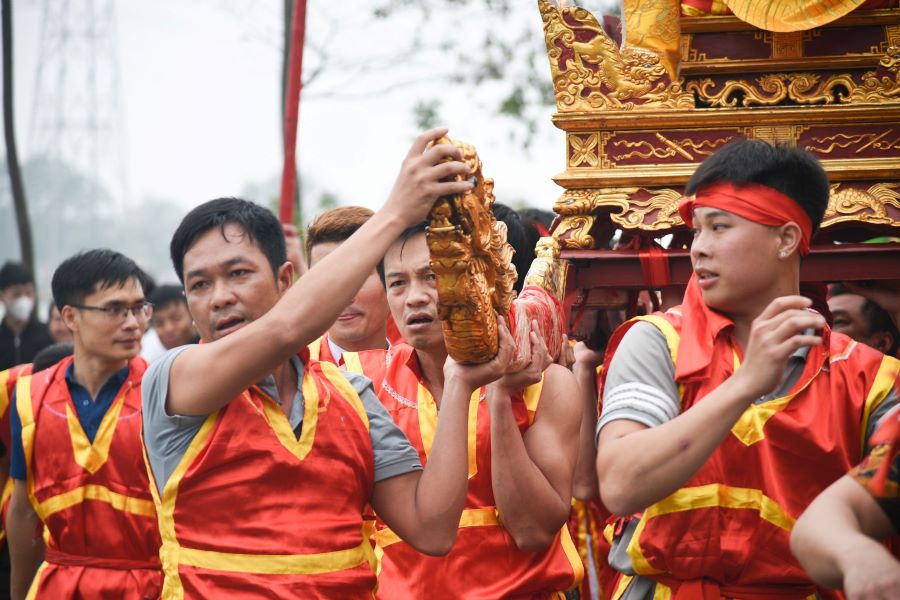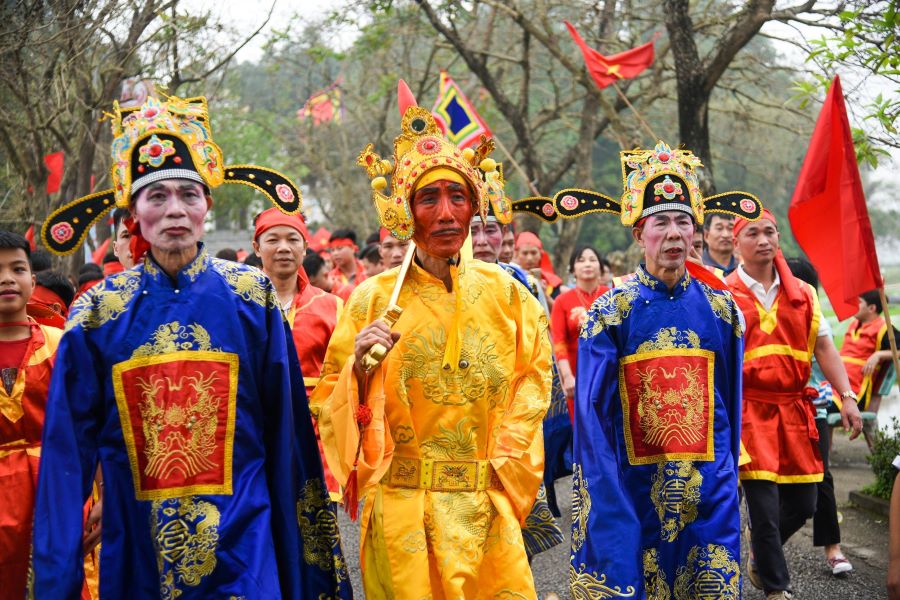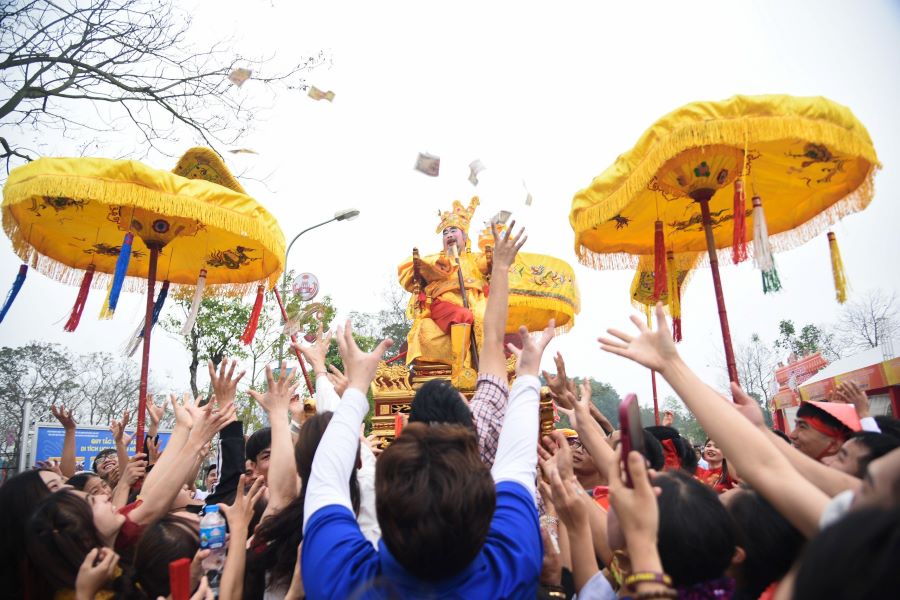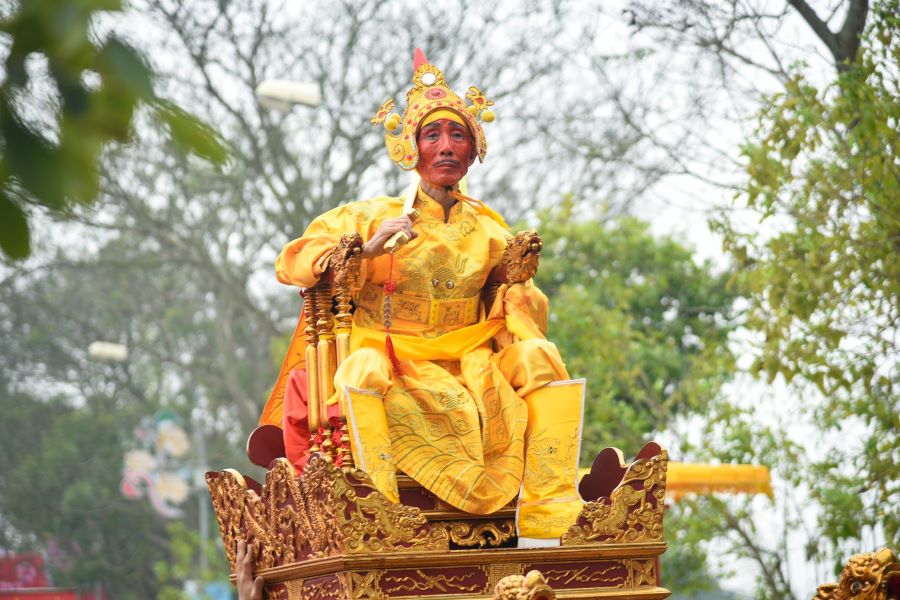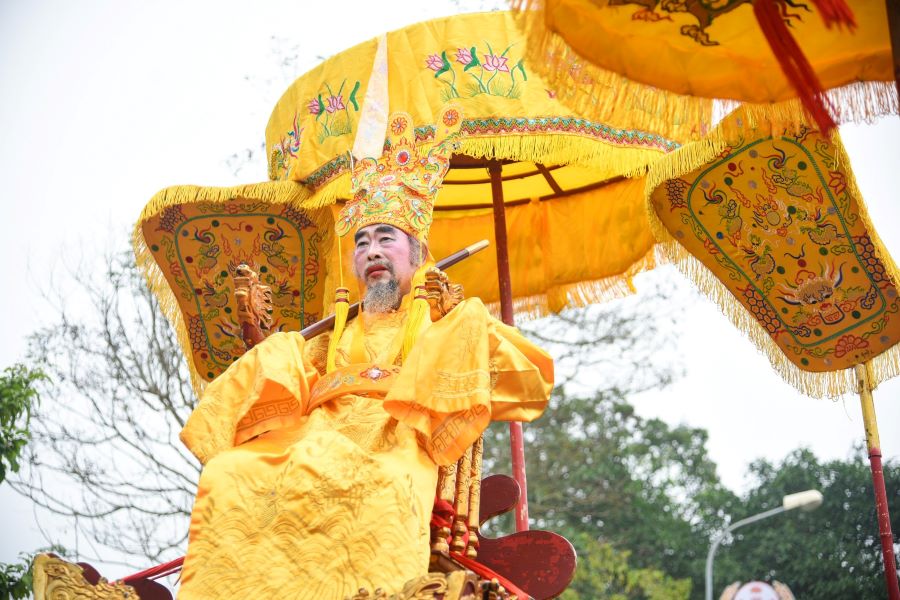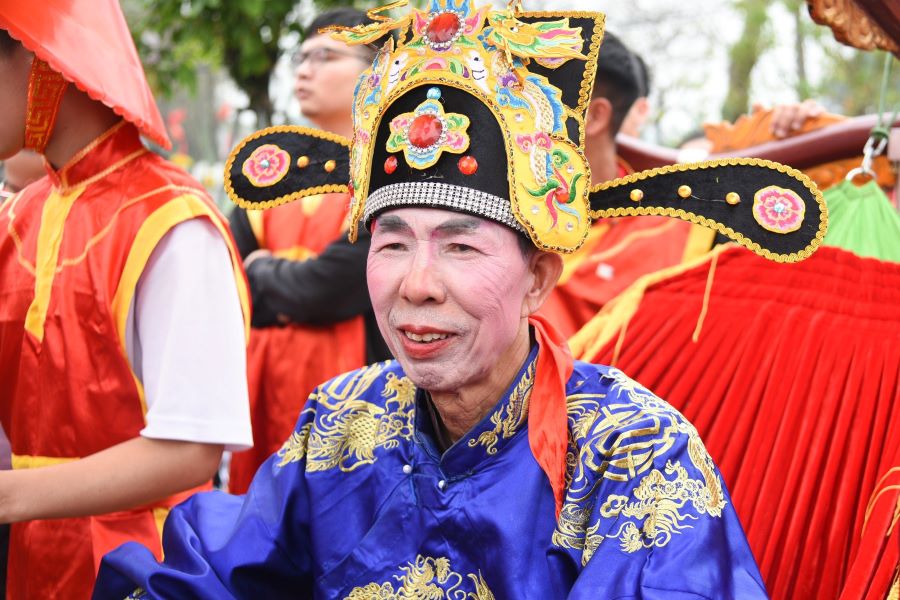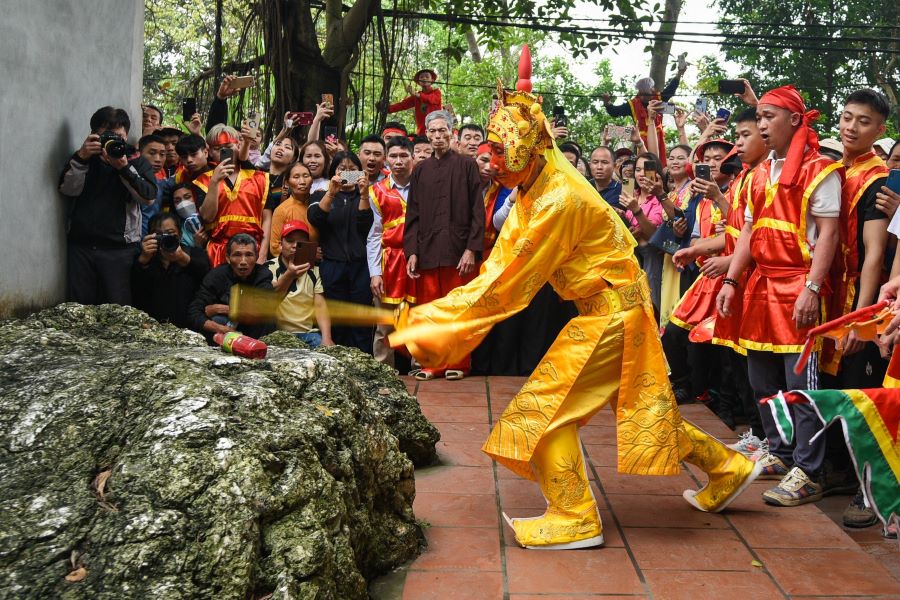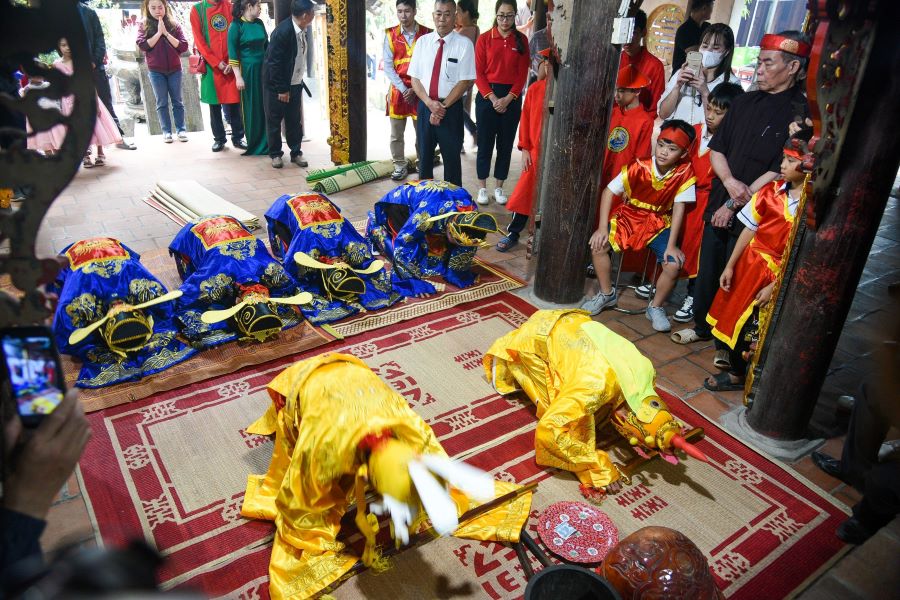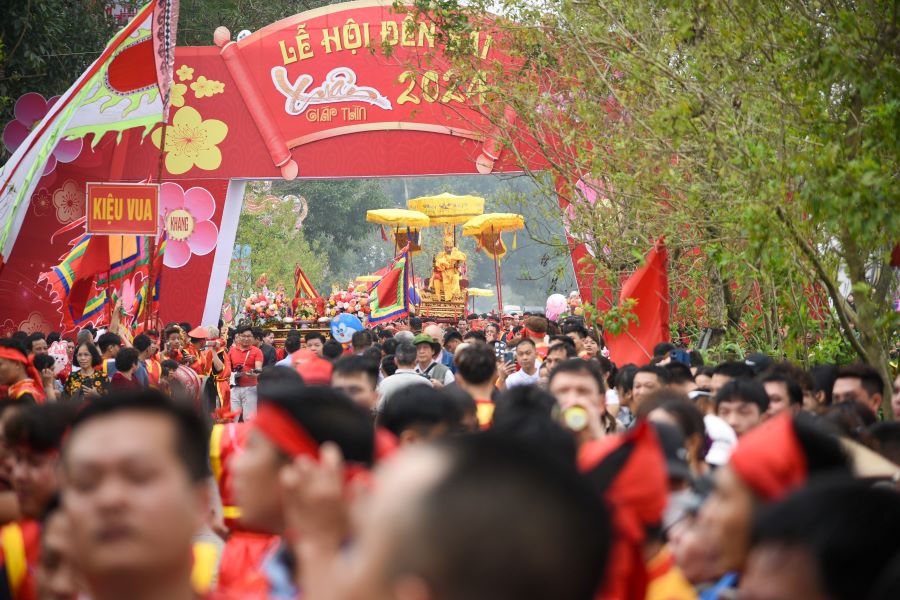The Sai Temple Festival in Dong Anh District, Hanoi, is usually held on the 11th day of the first lunar month, or on February 20 this year. The festival has its origin in the legend of King An Duong Vuong who built the Co Loa Citadel in 258 B.C., which has it that the king's rampart construction was sabotaged by the Bach Ke Tinh or White Cock Devil.
The highlight of the Millennium Festival is the procession of the King and the Lord. According to ancient beliefs, the ritual is intended to ward off evil spirits and bad luck.
|
| The roles of "King" and "Lord" in the Sai Temple Festival are played by two village elders. Photo: Huy Pham/The Hanoi Times |
|
| It takes months for the villagers of Sai to prepare for this vibrant and joyful festival. |
|
| A person who impersonates a king, lord, or mandarin must have good virtues and a good reputation among the villagers. |
|
Before playing the role of "King" or "Lord", the elders (over 70 years old) must play the role of "Mandarins" during several editions of the festival. |
|
| Le Vinh Lo, 75, with his face painted red, the color of majesty and austerity, plays the role of "Lord". |
|
| Meanwhile, Tran Tien Tinh, 72, played the role of "King" with a softer white face. |
|
| In addition to "King" and "Lord", there are also "Mandarins" in blue court dresses. |
|
| The "Lord" makes ritual sacrifices to the saints who have protected the villagers at two sacred temples in the area. |
|
| The festival has been celebrated by Sai villagers for hundreds of years. |
|
| The Spring Festival attracts thousands of residents and tourists every year. |

